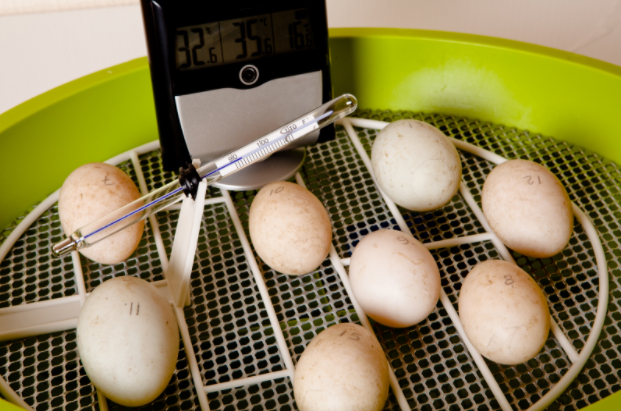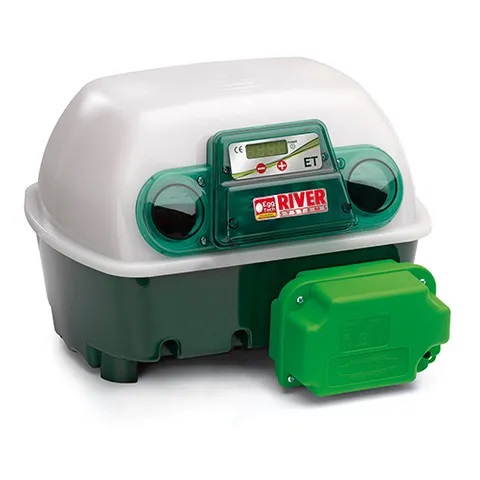Important Things to know about Incubator and Humidity

Incubating and hatching your own chickens can be a very rewarding experience, especially if most of your hatchlings make it through. If you decide to incubate the eggs yourself, it is very important that you educate yourself on the workings of the incubator.
The heat and humidity in your incubator is the MOST IMPORTANT part of the whole incubation process. It can mean the difference between a successful hatch and a complete failure.
Heat and humidity that are constantly at a wrong level or that fluctuate all the time can interfere with the normal development of the embryos and thus cause them to die at some point or another. If this happens, you might end up with no hatchlings at all.
It might seem very daunting to keep the temperature and humidity stable at the correct levels, but if you have a good quality incubator you shouldn’t have to worry too much. Good quality incubators have inbuilt alarm systems that will warn you when the temperature or humidity goes outside of the acceptable range thus giving you time to fix the problem before any damage can be done to your eggs.
Don’t panic just yet, read on for some tips on how to perfect the art of getting the temperature and humidity stable in the correct range.
Temperature
The temperature inside your incubator should be maintained at around 37 to 39 degrees Celsius. If possible, try to keep the temperature stable at 37.5°C. Do not attempt to heat the incubator more than the required temperature. Doing so will speed up the development of the embryo but also reduce your chances of having a successful hatch. You might even end up with disabled and abnormal chicks.
Don’t worry if your incubator experiences short periods of cooling, this is normal to maintain the correct temperature. You do need to start worrying if these periods are prolonged and the incubator cools beyond the acceptable range. The temperature drop beyond the acceptable range can result in the death of your developing embryos.
Humidity
You should try to keep the humidity level in your incubator between 50 and 55% for most of the incubation process. The last 3 days of incubation will have a higher humidity at around 65 to 70% so make sure to increase the humidity on day 18 when you stop turning your eggs.
A pan of water under the egg tray usually provides the necessary humidity in most incubators. You may need to add warm water every now and then so keep an eye on the humidity level of your incubator.
The humidity level can easily be adjusted by increasing or decreasing the ventilation in the incubator.
The Effect of Placement
The temperature and humidity in your incubator is not the only thing you need to think about. Where you place your incubator will also play a role. The humidity and temperature outside of the incubator will have an effect on the humidity and temperature inside the incubator.
It is advisable to place your incubator in a room where the fluctuations of humidity and temperature can be kept to a minimum. This means that the incubator should be placed out of direct sunlight in an area without drafts and air conditioning. It is best if you can keep the room temperature between 21 and 24°C during incubation.
Equipment And Incubator Features
Since the humidity and the temperature in your incubator is so important, you should have an incubator that allows you to control them with ease. A good incubator has a very accurate temperature control system that can be easily adjusted and is almost spot on every time.
The temperature and humidity can change quite drastically very quickly so it is important that you have an alarm system in your incubator that will notify you if any drastic changes take place. As a backup you should have an accurate thermometer and hygrometer, preferably digital, inside the incubator in case of instrument failure. To be safe, you can check your incubator against one or more thermometers inside your incubator to be sure everything is ok, you can never be too careful.
Once your chooks have hatched, you’ll be amazed at how quickly they grow up to be adults. You will have to make sure that you have the necessary knowledge to raise healthy baby chickens into a fully-fledged flock. Mistakes are easy to make, but with good preparation, you will be just fine! Refer to our section on raising baby chickens for more information on this topic.

Experience and Learn Egg hatching with the 12 Day Chicken Hatching Program
Recommended for Early Learning School centers, Aged Care, different companies and at homes for personal learning experience. Providing Chicken Programs Since 2001 to Sydney, Central Coast, Canberra and the Illawarra.



